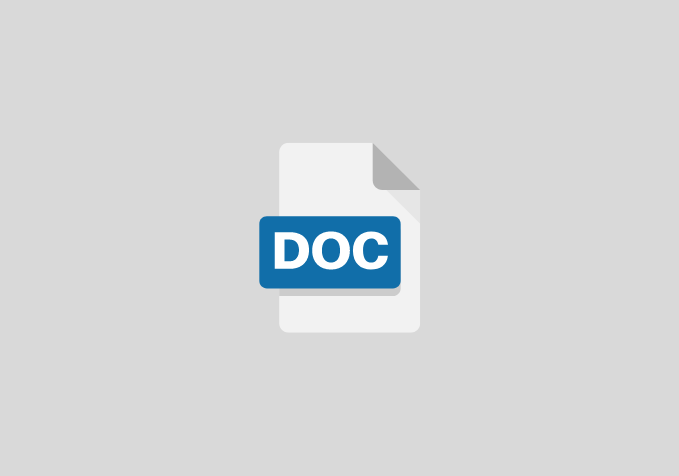Copyright Infringement in Nigeria and Challenges in a Digital World
CHAPTER ONE
OBJECTIVES OF THE STUDY
The following are the objectives of this study:
- To examine the spate of copyright infringement in Nigeria.
- To identify the challenges of copyright infringement in a digital world.
- To determine how copyright infringement can be handled considering digital technology.
CHAPTER TWO
REVIEW OF RELATED LITERATURE
INTRODUCTION
This chapter gives an insight into various studies conducted by outstanding researchers, as well as explained terminologies with regards to copyright infringement in Nigeria and challenges in a digital world. The chapter also gives a resume of the history and present status of the problem delineated by a concise review of previous studies into closely related problems.
THEORETICAL FRAMEWORK
Copyright is an intangible, incorporeal property, which guarantees the owner the exclusive right to deal with his/her work within a stipulated time as provided under the law. Copyright and related rights are today perceived as instruments for development, as well as providing a secured and stable environment for creative activities. The creative industry which encompasses all intellectual productions has contributed in no small measure to economic growth and development of creators in the world in general and Nigeria in particular. Surprisingly, the owners of this intellectual creativity are robbed of their rights by pirates who reap where they have not sown. Piracy is a great challenge to creative industry worldwide and Nigeria in particular. It may be said to be a cankerworm in the growth and development of intellectualism, more deadly than AIDS to human health, and the perpetrators, terrorists.
However, the contributions of the creative industry, particularly in copyright issues to socioeconomic development has been due to efficient management system. In Nigeria today, this management is carried out by the Nigerian Copyright Commission (NCC). This commission administers copyright issues. Its administration and the output of the creative industry has been frustrated by the effect of copyright piracy which discourages creativity. In reaction to this menace the NCC fights against piracy. However, this fight is met with numerous problems, such as poor funding, security, corruption, poor enforcement mechanism, poor knowledge of information and communication technology (ICT) and so on.
The Nigerian Copyright Commission and the Administration of Copyright
The Federal Military Government in 1988 promulgated the copyright Decree No. 47 of 1988. This Decree was redesignated the Copyright Act in 1990. This Act not only created favourable conditions for actualization of author’s potentials through protection of creative work, but also incorporated on establishment, for the first time, machinery for the administration of copyright in Nigeria called the Nigerian Copyright Council. Owing to the need to align the council with the emerging trend in global copyright administration and enforcement, its status was changed to a commission in 1996. The Nigerian Copyright Commission is still incorporated in the subsequent amendment of the Copyright Act in 2004.
CHAPTER THREE
Advertisements
RESEARCH METHODOLOGY
Introduction
This chapter describes the research design, the target population and random sampling procedure, the instrument used, method of data collection and method of data analysis.
Research design
This is a descriptive study on copyright infringement in Nigeria and challenges in Digital world. A sample population will be used to collect primary data using the structured questionnaire and interview as research instrument.
Population of the study
The target population for this study consists of the Nigerian copyright commission.
Sample size and sampling technique
Random sampling technique was used in this study. The sample size determined for this study was thirty two staff of Nigerian copyright commission in Lagos State, Nigeria.
Method of data collection
Questionnaire method was used as instrument for collecting data in this study.
CHAPTER FOUR
DATA PRESENTATION, ANALYSIS AND INTERPRETATION
This chapter is devoted to the presentation, analysis and interpretation of the data gathered in the course of this study. The data are based on the number of copies of the questionnaire completed and returned by the respondents. The data are presented in tables and the analysis is done using the chi square test.
Table 1 above shows the gender distribution of the respondents used for this study.
16 respondents which represent 50.0percent of the population are male.
16 respondents which represent 50.0percent of the population are female.
CHAPTER FIVE
FINDINGS, SUMMARY AND CONCLUSIONS
The objectives of the study were to:
- To examine the spate of copyright infringement in Nigeria.
- To identify the challenges of copyright infringement in a digital world.
- To determine how copyright infringement can be handled considering digital technology.
Findings from the study revealed the following
- There is a high level of copyright infringement in Nigeria.
- Government hasn’t done enough in the prevention/reduction of copyright infringement in Nigeria.
- There are solutions to copyright infringement in Nigeria.
- Copyright infringement does not encourage creativity in Nigeria.
REFERENCES
- Ajirere T. (2008). “The Anniversary of the Nigerian Copyright” available at URL://http://www.ndunigeriadailynews. com
- Ayemi Ayo, (2010) “Why Legal Framework for Broadcasting Industry may be Strengthened Now”, available at: URL: http://www.allafrica.com/12009…html.
- Akinsuyi, Y., ‘NCC Partners Google to Fight Internet Piracy’ This Day Live, Available at http://www.thisdaylive.com/articles/nccpartnersgoogle accessed on 15th August 2014.
- Alakam, J., ‘Transverse Discs Tech Intensity Fight Against Piracy’ Vanguard Newspaper 8 th Oct., 2014 Available at http://www.vanguardngr.com/2014/04/transverse-disc-tech-intensify.
- Asein J.O.. and E.S Nwauche (eds) A Decade of Copyright Law in Nigeria (2nd edn, Ibadan: Sam Bookman, 2001). Auth, I.,“Exporting Professional Service Seizing Opportunity’ (2012) Available at http://www.abillionem.com accessed 14th Nov., 2014
- Ezekude, A.,‘Anti Piracy Drive Field Result’ (2012) WIPO magazine Available at http://www.wipo.int.wipo_magazine/end/2012/03/article accessed 12th January 2013.


